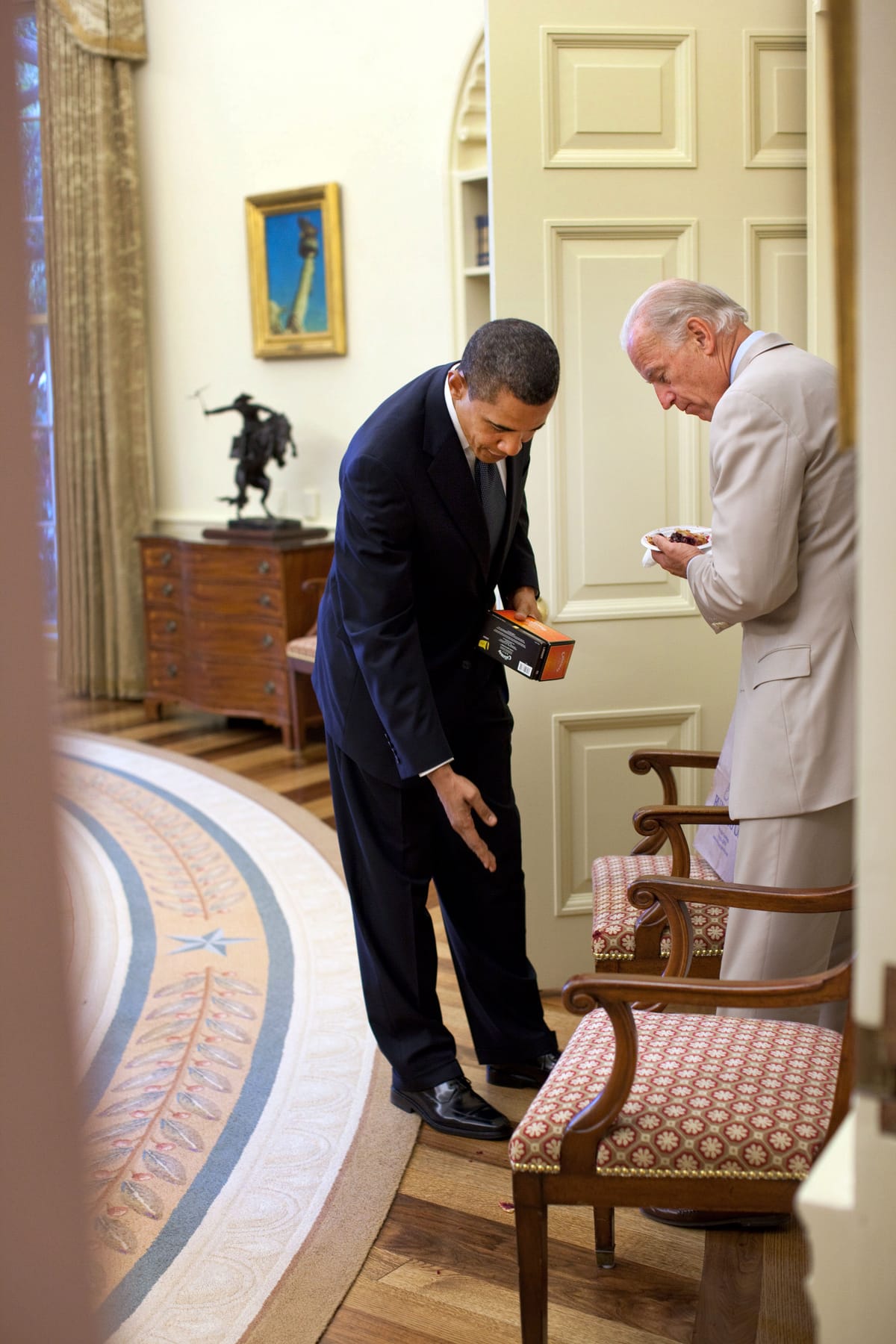The Key Thing 6 of the Last 8 U.S. Presidents Have in Common

What do four of the last six Speakers of the U.S. House and six of the last eight Presidents of the United States have in common?
They all love lemon scones!
That's not actually true.
Let's take a short stroll through the origin stories of some modern Speakers of the House, a position that's second in line to the presidency (and arguably far more powerful than the first in line).
Current Speaker Mike Johnson, who once aspired to be a fire fighter, came up through the Louisiana State House of Representatives. And now, at the risk of sounding too cute by half, finds himself with plenty of Congressional fires to fight.
His predecessor, a former deli owner and the first Republican in his immediate family, cut his political teeth as California Assemblymember Kevin McCarthy.
Then there's John Boehner, who loved cigarettes so much and smoked them inside so much that his successor Speaker Paul Ryan had to put new furniture and carpets into the Speaker's Office. But before all that, he was a member of the Ohio House of Representatives. And after all that, former Speaker Boehner became a lobbyist for the tobacco industry. Fittingly.
And disgraced Speaker Denny Hastert represented the 39th district in the Illinois House of Representatives.
So four of the last six Speakers were state legislators.
There's a notable absence on this list that rhymes with Belosi... Before coming to D.C., Speaker Nancy Pelosi was on the state-level political side chairing the California Democratic Party.
But let's not stop there. How about some other lions - or jackals, depending on where you sit - of today's Congress.
Senate Minority Leader Mitch McConnell was the Jefferson County Judge/Executive (a position whose powers have now been folded into the Mayor of Louisville).
Senate Majority Leader Chuck Schumer, like House Minority Leader Hakeem Jeffries, served in the New York State Assembly.
For those following along at home, the four most powerful members of Congress - the House Speaker and Minority Leader and the Senate Majority and Minority Leader - all did time in state-level government.
In fact, nearly half of the previous Senate (45 Senators) and some 44% of the previous House (193 Members) started off in state legislatures.
Now, let's move one rung up the food chain to the Oval Office.
The 39th person to occupy it got his political start on the Sumter County School Board, then served in the Georgia State Senate, and become governor of the Peach State.
President Jimmy Carter's Georgia State Senate race was a case study in electoral shenanigans. Political boss Joe Hurst decided Carter's opponent Homer Moore was his guy and on Election Day, a friend of Carter's watched Hurst encourage folks to vote for Moore and remove ballots from the ballot box, then hide absentee ballots under his daughter's bed.
The 40th Oval Office occupant was a film star with a fondness for Jelly Beans whose first tour of public service was as governor of California.
The 42nd occupant was a tenor saxophonist from Hope, Arkansas who started elected office as his state's Attorney General before becoming governor.
He was followed by the former governor of the Lone Star State. Who was followed by a former Illinois State Senator.
Lastly, there's the current occupant who started off as a New Castle County Councilman.
In a November 1970 article about Joe Biden from The News Journal, then-Councilor Biden says, "In her Walter Mitty dreams, my wife sees me as a Supreme Court Justice."
To review:
- Six of the last eight American Presidents kicked off their careers at the state-level.
- Four of the last six House Speakers were state legislators.
- The four most powerful leaders in Congress right now started in state government.
Now hold that up against this stat: only 20% of Americans can name their state legislators.
And one in three people can't name their governor.
That data becomes even more striking when held alongside this: Congress is only passing about 2% of bills. Which means state and local legislators, often unfairly seen as political minor leaguers, and governors play a major league roll in shaping the laws we live under.
My seventh grade history teacher used to say, "The end of every essay you write should be your So What. Your 'why does any of this matter.'" So here's my So What.
Not only do local and state government make a huge number of decisions about the quality of our daily life – from the speed limit outside our home to what can be in school curricula and on library shelves to who can have guns and abortions – today's mayors are tomorrow's state senators are the day after tomorrow's Members of Congress and maybe even next week's presidents.
And each step someone takes up the ladder, the harder it is to get their ear. So why not get to know our town councilors and state legislators? No matter what office they may go on to assume, they still hold plenty of power right now.
(And while I haven't yet tried it, this lemon scone recipe does seem like it could win the hearts of Speakers and Presidents.)
